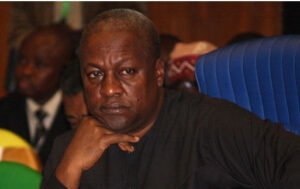
By Dr Ebenezer Ashley
Most African economies have witnessed massive disruptions in their socio-economic activities following the outbreak of the COVID-19 pandemic. The spread of the pandemic has ravaged most economic activities and landed the continent in one of her worst contractions in recent years. Although statistics released by the African Development Bank show a positive outlook in the current year, available data from the World Bank and other relevant economic institutions depict sharp decline in the economic performance of African economies while the continent’s total output for 2020 is projected to take a nose-dive.
Indeed, COVID-19 has compelled the African continent to battle with many significant macro-economic indicators, including inflation and exchange volatilities. These debilitating factors have the tendency to affect Africa’s overall economic performance and output, and her contribution to sustainable development of the global economy.
Global GDP
Available data on real Gross Domestic Product (GDP) growth in Africa from 2014 through 2019 depict fluctuating economic performance. Africa’ real GDP growth rate in 2014 was 5.13 per cent. However, this thumped to 3.19 per cent and 1.43 per cent in 2015 and 2016; and increased to 3.0 per cent in 2017 respectively.
Africa’s respective real GDP growth rates in 2018 and 2019 were 3.27 per cent and 3.07 per cent. The World Bank (2020) noted the African economy is characterised by 1.334 billion-person market and a citadel of the largest free trade area across the globe.
In spite of the foregoing strong attributes, Africa’s overall economic performance and contribution to global GDP in recent years have not been encouraging relative to other regions across the globe. For instance, global GDP in 2017 was estimated at US$80.94 trillion. However, Africa’s total contribution was estimated at US$1.67 trillion, making Africa the least contributor (among six regions) to global GDP during the period.
The respective global GDP values in prior years, that is, 2014 through 2016 were US$73.73 trillion, US$75.83 trillion, and US$77.80 trillion. Nonetheless, Africa’s respective total contributions during the period were US$1.83 trillion, US$1.67 trillion, and US$1.55 trillion. In percentage terms, Africa’s respective contributions to global GDP during the period were 2.48per cent, 2.20 per cent, and 1.99 per cent.
In 2019, global GDP was estimated at US$87.27 trillion while Africa’s total GDP was about US$2.58 trillion, implying about 2.9 per cent contribution by the latter to global GDP during the period.
Inflationary trend
The ravaging impact of COVID-19 on socio-economic activities have had telling effects on inflationary trend in Africa. The average rate of inflation in Africa in April 2020 was 15.0 per cent. The rate edged up to 15.2 per cent in May 2020. Rising food prices in Ghana, Angola and Nigeria were identified as the major drivers of inflation while constant price acceleration was apparent in Zimbabwe. Prices kept soaring in triple digits in Zimbabwe during the period. Countries such as Ghana and Nigeria have lowered benchmark rates for banks to increase liquidity and ease loan creation in their respective economies. Some market analysts argued this development has the potential to fuel-up inflation.
Nonetheless, managers of the respective Ghanaian and Nigerian economies belief strategic measures put in place are adequate to tame the “muscles” of inflation during the second half of the current financial year. Disruptions in supply and weaker currencies occasioned by COVID-19 are likely to accelerate inflation in the current year above rates recorded in 2019. The average inflation rate in Africa in 2020 is targeted at 9.32per cent. This is 0.94 per cent higher than the 8.38per cent recorded in 2019 and 1.72 per cent more than the average rate targeted for 2021. The lower targeted inflation rate (7.6 per cent) is indicative of strong confidence in the African economy to bounce back in 2021.
Challenges
One of the staggering social issues saddled with African economies is the challenge associated with the reading capabilities of many learners. Available records indicate over 50 per cent of all learners who are aged 10 in developing economies including Africa could barely read.
Further, limited socio-economic reforms, uncertainties in global trade, and natural occurrences or disasters have been identified as major contributors to the underperformance of African economies.
In 1996, the World Bank and International Monetary Fund (IMF) launched their maiden Heavily Indebted Poor Countries’ (HIPC) initiative. This initiative was a comprehensive financial effort aimed at eliminating unsustainable debts in heavily indebted and poorest economies across the globe.
However, 24 years after the launch of the HIPC initiative, total public debts in developing economies have risen to levels similar to and in some cases more than those in the late 1970s and 1980s.
The foregoing, notwithstanding, the composition of public debts in developing economies in recent years is complex; external debts are contracted from traditional development partners such as the World Bank, IMF and International Finance Corporation (IFC); and non-traditional development partners including China, other bilateral and multilateral financial institutions; and from the global bond markets, among other significant sources.
About 24 per cent of Africa’s total external debt is owed to China; and Africa’s external interest payment commitments to China is between 17 per cent and 20 per cent while 55 per cent of Africa’s external interest payments are made to private investors.
About 62 per cent of bilateral interest payments in Africa are made to China. The foregoing affirms limited financial transactions between the traditional development partners and African economies; and extended bilateral relations between China and Africa in recent years. Some analysts have however argued that financial transactions between developing economies and non-traditional development partners are less transparent.
Some economic pundits have identified a number of factors that could possibly contract the African economy in 2020. Notable among these include sharp fall in prices for commodities such as metals, crude oil, minerals, and other essential global commodities; deteriorating demand from major trading partners; radical measures adapted by countries to contain COVID-19 locally; limited fiscal space and increasing public debts. The foregoing factors are expected to bleak the African economy and drab the outlook further. This notwithstanding, the unfavourable outlook predicted for the African economy in the current financial year is believed to be transient. Some economic analysts are of the firm conviction Africa could emerge from the “ashes” of COVID-19 stronger and more competitive in 2021 and beyond.
Generally, the performance of most currencies in Africa against major foreign currencies such as the American dollar, European Union’s euro, and the British pound sterling in the current financial year could be described as volatile and fluctuating. Available data on the performance of currencies of selected African economies against the American dollar over a six-month period, that is, January through June 2020 revealed the respective Zambian kwacha fell in value or depreciated by 28.2per cent; South African rand by 21.4per cent; Mauritian rupee by 9.3per cent; and the Ghanaian cedi by 2.36per cent. The rate of depreciation of African currencies relative to major foreign currencies in 2020 is projected to be higher than in 2019.
CWA initiative
The Compact with Africa (CWA) initiative was mooted and established by the G-20 member countries under the German Presidency. The primary objective for the formation of the CWA is to enhance investment opportunities in Africa to accelerate development and growth. The CWA currently comprises twelve African countries with the sole aim of addressing major policy issues related to financial, business, and macro-economic frameworks. Statistics indicate foreign direct investments (FDIs) to CWA member-countries in 2018 amounted to US$21 billion, equivalent to 46per cent of total foreign direct investments to Africa. During the same period, FDI accumulation in CWA member-countries increased to US$295 billion, representing about 34per cent acceleration since 2014. This affirmed rapid FDI stock accumulation and economic growth in CWA member-countries in recent years.
The way forward
In order to assume her enviable role in the comity of regional economies across the globe, the African economy is expected to make significant progress in socio-economic reforms, ensure rapid digitisation; and to facilitate implementation of the African Continental Free Trade Area (AfCFTA) agreement, which some analysts have aptly described as a “once-in-a-lifetime opportunity for [economies in Africa] to work together, create markets, boosts exports, and increase cross-border infrastructure.” The convention among most African economies that the private sector is the “engine for growth” calls for the institution and implementation of policies that are business and investment friendly to increase FDI inflows while encouraging strong local participation. To ensure steady economic turn-around in post-COVID-19 era, African leaders are expected to move beyond theoretical economic rhetoric to practical implementation of recommended measures to assure positive improvements in their collective socio-economic performance to enhance the continent’s overall contribution to sustainable economic development and growth at the global level.
The author is a Chartered Economist/Business Consultant







